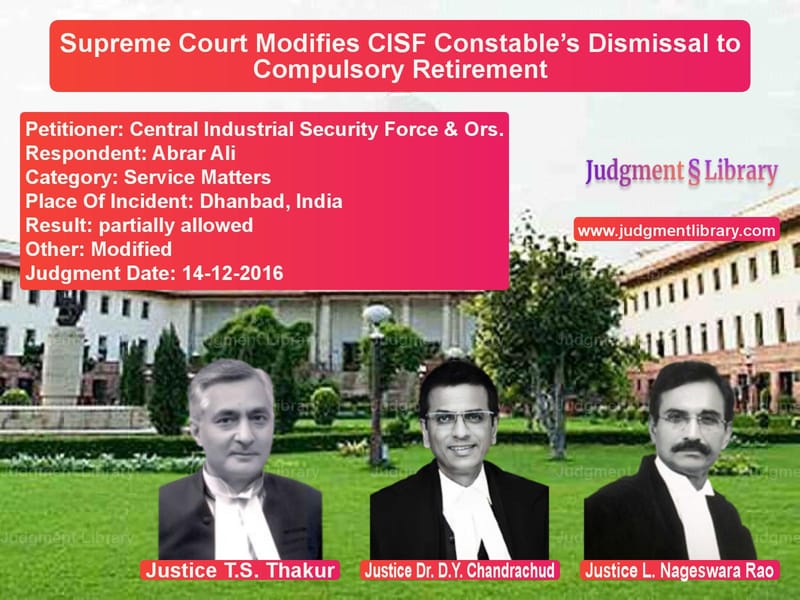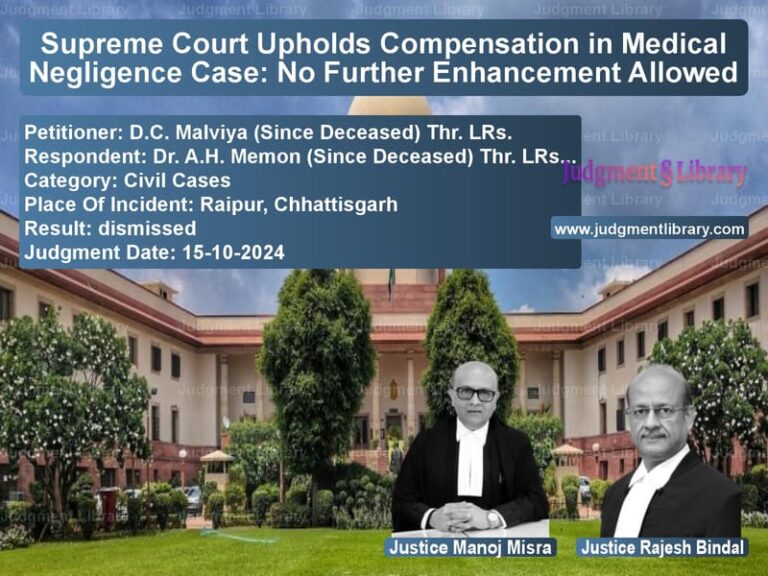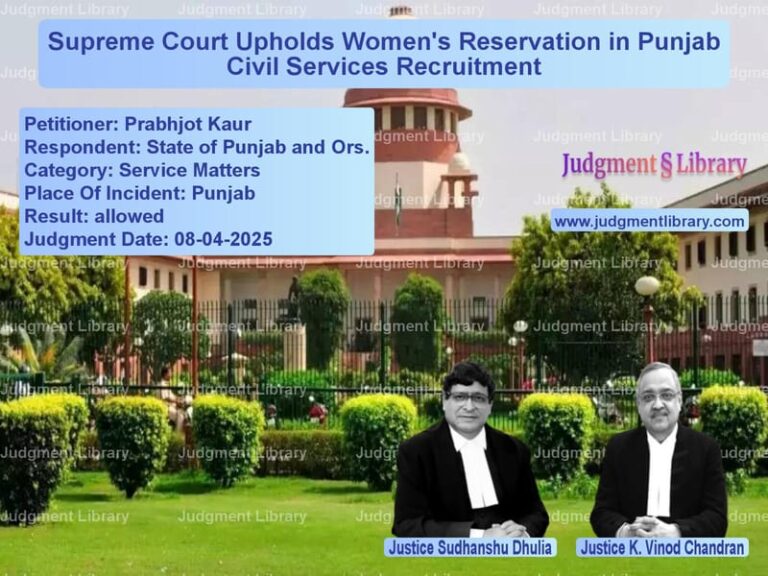Supreme Court Modifies CISF Constable’s Dismissal to Compulsory Retirement
The case of Central Industrial Security Force & Ors. vs. Abrar Ali revolved around the dismissal of a CISF constable for alleged misconduct, indiscipline, and desertion of duty. The Supreme Court upheld the disciplinary action but modified the penalty from dismissal to compulsory retirement, ensuring the respondent’s pension eligibility.
Background of the Case
The respondent, Abrar Ali, was appointed as a constable in the Central Industrial Security Force (CISF) on 10 September 1990. He was charged with serious misconduct, including unauthorized absence from duty and involvement in an alleged abduction case.
Three specific charges were framed against him:
- Charge 1: Absence from duty and failure to deposit his leave certificate upon return.
- Charge 2: Alleged involvement in the abduction of a minor girl (later disproven in criminal court).
- Charge 3: Repeated acts of indiscipline, with previous penalties for misconduct.
The disciplinary authority found him guilty of Charges 1 and 3, leading to his dismissal from service. The appellate and revisional authorities upheld the dismissal. However, the Delhi High Court overturned the decision, ordering reinstatement with full back wages.
Arguments Presented
Petitioner’s Argument (CISF):
- The High Court exceeded its jurisdiction by interfering with the disciplinary authority’s decision.
- Repeated indiscipline warranted strict action.
- Desertion of duty for five days constituted gross misconduct, justifying dismissal.
Respondent’s Argument (Abrar Ali):
- He was acquitted of the criminal charges; therefore, a departmental inquiry on the same issue was unfair.
- The penalty of dismissal was disproportionate to the alleged misconduct.
- Previous penalties should not be used to justify harsher punishment.
Supreme Court’s Judgment
The Supreme Court criticized the High Court’s interference, stating:
“The High Court should not have entered into the arena of facts, which amounts to re-appreciation of evidence. It is settled law that re-appreciation of evidence is not permissible under Article 226.”
However, the Court found that the penalty of dismissal was too harsh. While misconduct was proven, the Court held that compulsory retirement was a more appropriate punishment. The ruling allowed the respondent to receive pension benefits.
Final Verdict
- The respondent’s dismissal was modified to compulsory retirement.
- He was granted notional service continuity to meet pension eligibility but denied back wages.
- The CISF’s decision was upheld, but the penalty was made proportionate to the misconduct.
Conclusion
The Supreme Court’s ruling balanced disciplinary enforcement with fairness, ensuring that while the misconduct was penalized, the respondent did not lose his rightful pension benefits.
Don’t miss out on the full details! Download the complete judgment in PDF format below and gain valuable insights instantly!
Download Judgment: Central Industrial S vs Abrar Ali Supreme Court of India Judgment Dated 14-12-2016.pdf
Direct Downlaod Judgment: Direct downlaod this Judgment
See all petitions in Disciplinary Proceedings
See all petitions in Judgment by T.S. Thakur
See all petitions in Judgment by Dhananjaya Y Chandrachud
See all petitions in Judgment by L. Nageswara Rao
See all petitions in partially allowed
See all petitions in Modified
See all petitions in supreme court of India judgments December 2016
See all petitions in 2016 judgments
See all posts in Service Matters Category
See all allowed petitions in Service Matters Category
See all Dismissed petitions in Service Matters Category
See all partially allowed petitions in Service Matters Category







